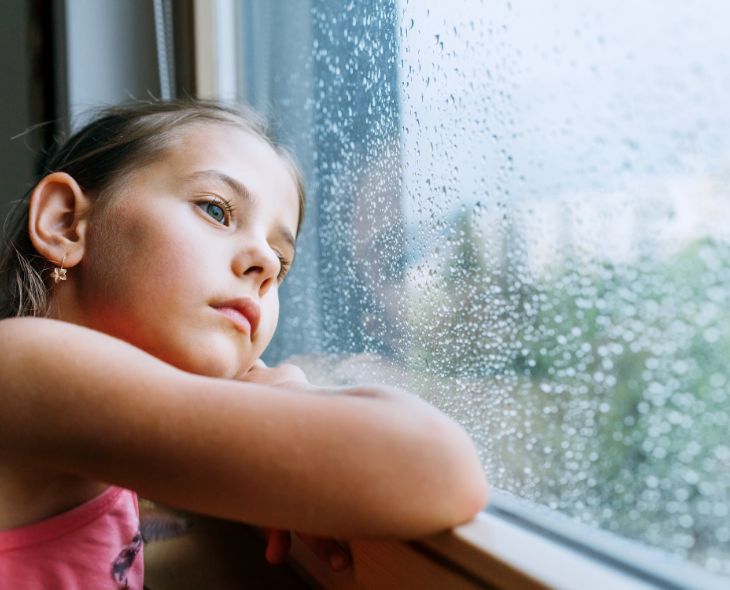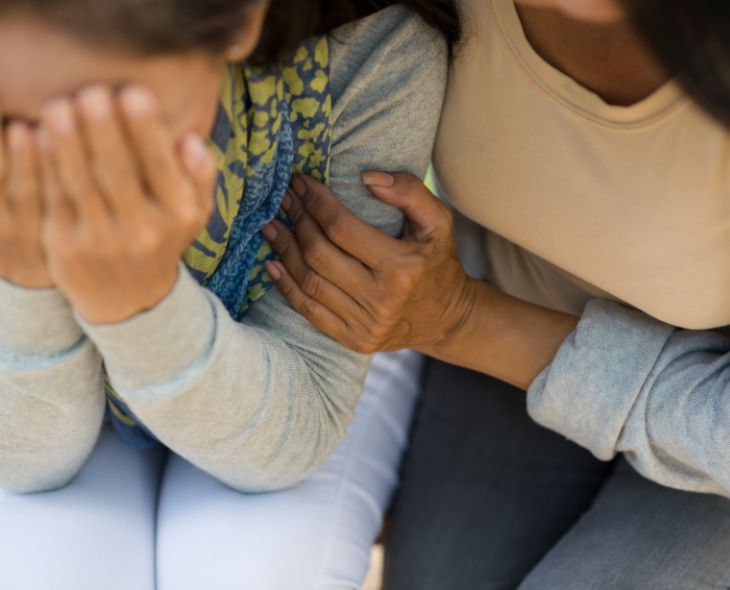On this page, you’ll find information on how to identify and report child abuse and neglect. Please note: TexProtects works with the state Legislature to address policies and programs related to child abuse and neglect. We do not handle individual cases.
Suspect someone of child abuse or neglect?
Contact the Texas Child Protective Services Hotline
Reports are anonymous. Available 24 hours a day, 7 days a week.
1-800-252-5400 or online.
Want to inquire about a case or file a complaint about CPS?
Contact the Office of Consumer Affairs
1-800-720-7777 or online.
Types of Child Abuse and Neglect
Child abuse is the mistreatment of a child that results in harm or injury. There are four basic types of child abuse. Children who are abused are likely to experience more than just one.

Neglect
80% of child abuse cases in Texas and in the United States are the result of neglect, which is the failure to provide for a child’s basic physical, medical or emotional needs.
- Begging, stealing food or money
- Extended stays at school (early arrival/late departure)
- Constant fatigue, listlessness, or falling asleep in class
- Alcohol or drug abuse
- Delinquency
- Consistent hunger, poor hygiene, inappropriate dress
- Consistent lack of supervision, especially in dangerous activities or over long periods
- Unattended physical problems
- Abandonment
- States there is no one at home to provide care

Physical Abuse
A physical injury that results in substantial harm to the child, such as bruises, fractures or death. It also can include a genuine threat of harm even if there is no visible injury.
- Unexplained bruises and welts
- Unexplained burns
- Unexplained fractures
- Unexplained lacerations or abrasions
- Has fading bruises or other noticeable marks after an absence from school
- Wary of adult contact
- Apprehensive when other children cry
- Behavioral extremes:
- Aggressiveness or withdrawal
- Frightened of parents or other significant persons
- Afraid to go home – comes to school early, stays late
- Reports injury by parents
- Has learning problems that cannot be attributed to specific physical or psychological causes (PCAA)
- Is always watchful, as though preparing for something bad to happen (PCAA)

Emotional Abuse
An action that results in a marked impact on a child’s growth, development or psychological functioning. Includes extreme forms of punishment like confining a child in a closet or habitual scapegoating.
- Speech disorders
- Lags in physical development
- Habit disorders (sucking, biting, rocking, etc.)
- Conduct disorders (anti-social, destructive, etc.)
- Neurotic traits (sleep disorders, inhibition of play)
- Psychoneurotic reactions (hysteria, obsession, compulsion, phobias, hypochondria)
- Is either inappropriately adult (ex. parenting other children) or inappropriately infantile (ex. frequently rocking or head-banging)
- Shows signs of depression or suicidal thoughts

Sexual Abuse
Sexual conduct harmful to a child’s mental, emotional or physical welfare. This includes fondling a child’s genitals, penetration, indecent exposure and exploitation through prostitution or pornography.
- Venereal disease in a child of any age
- Pregnancy at an early age
- Evidence of physical trauma to the genital area or mouth
- Odd or unusually shaped bruises; caused by sucking
- Complaints of itching, pain or discomfort around the genital area
- Torn, stained, or bloody underclothing
- Extreme passivity when touched
- Abrupt change in behavior or appetite
- Suddenly refuses to go to school
- Seductive behavior with classmates, teachers, other adults
- Promiscuity
- Showing extremes in regard to touch – demonstrating either inappropriate sexual touch and behavior or extreme reluctance to be touched by an adult
- A knowledge of sex that is inappropriate for the child’s age or developmental level; explicit knowledge of sex acts
- An unusual interest or fixation with sexual acts or terminology
- Refusal to undress for physical education
- Reluctance to be with a certain person
- Attaches very quickly to strangers or new adults in their environment


